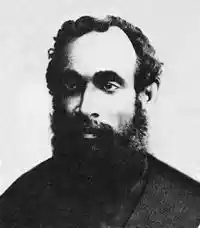'Surrender Not' Banerjea
Author of “A Nation in Making” and instrumental in making the nation what it is today, Surendranath Banerjea’s battlecry of “opposition where necessary, and cooperation where possible” reverberates through generations

For his indomitable spirit, the British called him 'Surrender Not' Banerjea; Image Source: Wikimedia Commons
Eminent scholar, orator, statesman, and one of the pioneers of India’s struggle for independence, Surendranath Banerjea’s contributions to India’s freedom merits attention.
Making his way into the coveted Indian Civil Services in 1869 as only the second Indian after Satyendranath Tagore to do so, he embodied the popular maxim ‘to change the system from within’. However, this was not an easy feat.
After clearing the exam, his qualification was challenged on flimsy grounds with respect to breaching the age limit. According to the traditional Indian measure, the age of a person is calculated as 1 from birth. Therefore, Banerjea’s matriculation certificate showed him as 22 while the age limit for civil services was 21. He took the matter to court and eventually won his case in 1870, then reappeared and cleared the exam once again in 1871. He then returned to India as the Assistant Magistrate of Sylhet (now in Bangladesh) but was dismissed on a specious charge in 1874 following a controversy and charges of procedural irregularities.
He once again returned to England to find himself another career and returned in June, 1875 when he started working as a Professor. He was appointed as an English Professor in Metropolitan College by Ishwar Chand Vidyasagar for Rs 200 per month. Banerjea, later shifted to teaching in Free Church College and Ripon College.
In an interesting turn of events, in 1948-49, the Ripon College was renamed as Surendranath College as a mark of respect for his contribution to the foundation of the college and to the national movement.
He held the teaching profession in high esteem and touted them as “the masters of the future.”
His stint with teaching also earned him the title of “Rashtraguru” (teacher of the nation).
He eventually had to take a leave from active teaching when he was elected to the Imperial Legislative Council in 1913.
His political activity became prominent in the late 19th century with the foundation of The Indian Association in 1876, which he intended to make the focus of all political movements in India. So intrinsically connected with the Association, he is said to have convened meetings on the same day of his son’s death and merely three days after his wife passed away. He never let his personal sorrows come in the way of his duty towards the nation.
He later merged his Association with the Indian National Congress at the latter’s second meeting in 1885 as it upheld similar goals and ideals. He was selected for the presidentship of Congress on two occasions- 1895 and 1907.
With this, he edited a paper called ‘Bengalee’, a pioneer of fearless journalism. He passionately wrote about topics of national interest emphasizing on culture, unity, and freedom. He courageously took a stand against the imperial powers to demand justice like in one of the cases where a native, Dr. Sircar was brutally murdered by three European soldiers in Barrackpore.
His intrepid writings also landed him in jail, making him the first Indian journalist to have been imprisoned in British India.
His arrest in 1883 sparked several protests and hartals across the country in Bengal, Agra, Faizabad, Amritsar, Lahore, and Pune. His political acme was achieved with his role in the Swadeshi Movement opposing Partition of Bengal in 1905. Born on November 10, 1848, in Calcutta, Banerjea had spent most of his life in Bengal; its partition was something he could not tolerate and vehemently opposed it. Strongly advocating for Indian manufactured goods in place of foreign products, his popularity rose abundantly at this time, and was called as the “uncrowned King of Bengal'' by his admirers. His efforts bore fruit when the decision to bifurcate Bengal was reversed in 1912.
He also fervently protested against the Vernacular Press Act of 1878, the Ilbert Bill, Morley - Minto Reforms of 1909, and the reduction of age in the Indian ICS Examination being lowered from 21 to 19.
Although strong in his opinion, he did not relate with the radical form of nationalism espoused by extremists such as Tilak that led to his gradual withdrawal from the Congress. He finally left the Congress after his falling out with Gandhi over the acceptance of Montagu-Chelmsford reforms.
The same year, he was knighted by the British Government in 1919.
His contributions were not only limited to political regeneration but also social reformation. He championed the cause of widow remarriage and raising the age of marriage for girls. He spoke volumes on the efforts of Keshab Chandra Sen and Vidyasagar who helped legalise widow remarriage.
Known as the 'Father of the Indian National Movement', Banerjea served as an inspiration to not just the next generation of Indian leaders like Gopal Krishna Gokhale and Sarojini Naidu, but to all Indians alike. He is remembered for his ideas, ideals, and the vision he envisaged for a free India.
In a meeting in 1878, he said “...Let the word “unity” be inscribed therein characters of glittering gold.. There may be religious difference(s) between us. There may be social difference(s) between us. But there is a common platform where we may all meet, the platform of our country’s welfare.”


